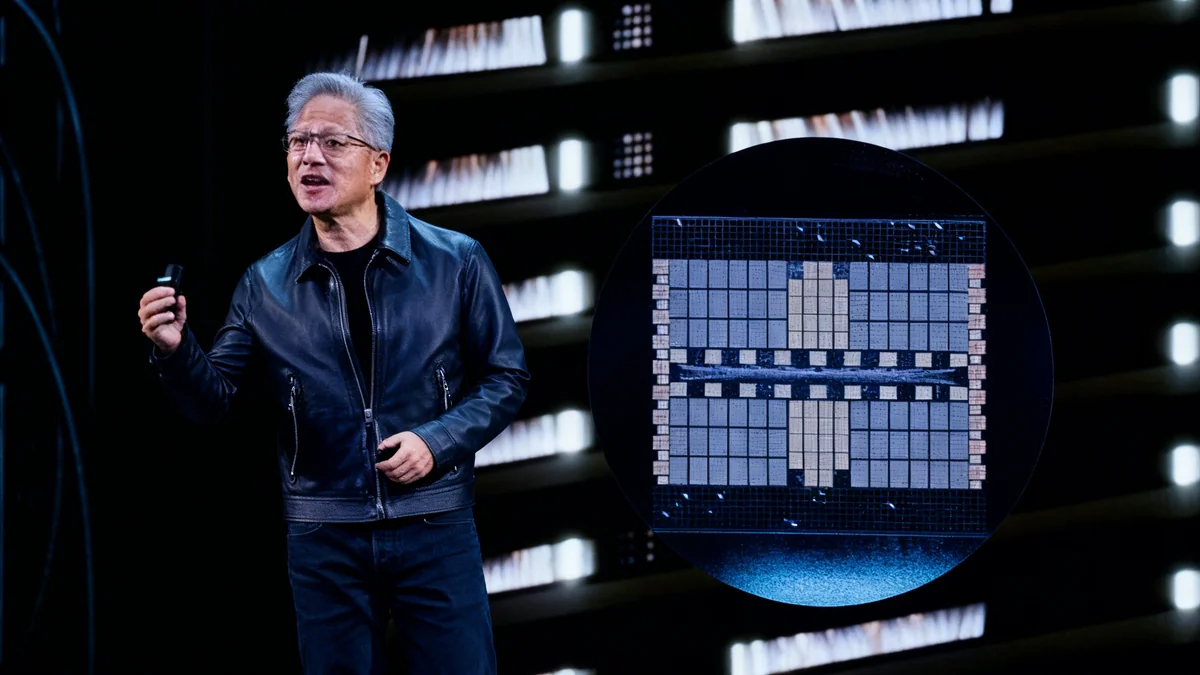A senior executive at financial technology company Stripe has raised concerns about the future career development of new employees in an era of increasing artificial intelligence. Emily Glassberg Sands, the company's head of data and AI, stated that while Stripe is hiring more recent graduates than ever, the automation of junior-level tasks by AI could hinder the mentorship and experience needed for them to advance.
Sands' comments, made during a live recording of the "Forward Future" podcast, highlight a growing dilemma for technology companies: how to cultivate future leaders when the traditional entry-level work that builds foundational skills is disappearing.
Key Takeaways
- Stripe's head of data and AI, Emily Glassberg Sands, is concerned about the mentorship pipeline for new graduates.
- The company is hiring more recent Ph.D. holders for their cutting-edge skills and fresh perspectives.
- AI tools are automating many specialized tasks traditionally handled by junior employees, creating a potential experience gap.
- Sands believes future jobs will reward critical thinking and collaboration more than specific hard skills.
- Her concerns are part of a larger debate on how AI will impact entry-level white-collar jobs.
Stripe Executive Highlights Mentorship Challenge
Emily Glassberg Sands of Stripe articulated a significant challenge facing the tech industry. She explained that her team actively recruits new graduates, particularly those with recent Ph.D.s, to bring advanced knowledge into the company.
"They have the cutting-edge skills and they come in with fresh ideas," Sands said during the podcast appearance. "They know how to think and they know how to use the latest tools." This strategy allows Stripe to stay at the forefront of innovation in data and artificial intelligence.
Despite the benefits of hiring new talent, Sands expressed a deep concern about their long-term growth. The core of her worry is the erosion of traditional learning opportunities for junior staff as AI takes over routine tasks. This automation disrupts the established path for gaining experience and receiving guidance from senior colleagues.
"I'm most worried about mentorship development," she stated. "It would be unfortunate if we woke up in 10 years with no pipeline."
This statement underscores the fear that a generation of workers might miss out on the fundamental experiences that build expertise, potentially leading to a shortage of seasoned leaders in the future.
The Role of Entry-Level Work
Historically, entry-level positions have served as a crucial training ground. New employees learn company processes, develop practical skills, and build professional networks by handling foundational tasks. This work, while sometimes repetitive, provides the context and experience necessary to tackle more complex challenges later in their careers. The automation of these tasks by AI raises questions about how this essential learning will occur in the future.
The Changing Value of Employee Skills
The rise of AI is not just changing tasks; it is fundamentally altering what companies value in their employees. Sands suggested that the emphasis is shifting away from technical execution and toward higher-level cognitive abilities.
"Increasingly, people are going to be rewarded for being able to think and ask the right questions and work with others, more so than they're rewarded for kind of the hard skills they have," she explained. This indicates a move towards valuing strategic thinking, problem-framing, and interpersonal skills over pure technical proficiency, which AI can often replicate.
This shift creates a paradox for junior employees. While they are hired for their up-to-date technical skills, their long-term success will depend on developing abilities that are not easily taught through automated workflows. This is the central issue that Sands is grappling with.
"The part I'm sweating is, what does entry level look like?" she added, highlighting the uncertainty around the future structure of early-career roles.
A Wider Debate on AI and Entry-Level Jobs
The concerns voiced by Sands are not unique to Stripe. They are part of a broader, ongoing discussion among economists, policymakers, and business leaders about the impact of artificial intelligence on the job market, particularly for those just starting their careers.
Federal Reserve Chair Jerome Powell recently commented on the issue, acknowledging that AI is likely a factor affecting the job market for recent college graduates. "It may be that companies or other institutions that have been hiring younger people right out of college are able to use AI more than they had in the past," Powell said, though he also noted that a general slowdown in job creation is a contributing factor.
A Stark Prediction
Some industry leaders have offered more dramatic forecasts. Dario Amodei, CEO of the AI company Anthropic, suggested that AI could eliminate as many as half of all entry-level, white-collar jobs within the next one to five years. This prediction represents the more disruptive end of the spectrum of possibilities.
Industry Counterpoints and a Path Forward
However, the outlook is not universally pessimistic. Some organizations are pushing back against the idea that AI will decimate junior-level positions. A report from McKinsey last month argued that AI is not killing entry-level jobs, and the firm itself plans to increase its hiring of junior workers.
This suggests that some companies see a future where AI acts as a tool to augment, rather than replace, new employees. In this model, junior staff might use AI to handle mundane tasks, freeing them up to focus on more creative and strategic work earlier in their careers.
Winston Weinberg, CEO of the legal AI startup Harvey, echoed this sentiment. Despite his company's technology automating work once reserved for junior lawyers, he stated a strong commitment to hiring and training young legal professionals. This approach implies a belief that mentorship and human development remain critical, even in a highly automated environment.
The differing viewpoints from leaders at Stripe, Anthropic, McKinsey, and Harvey illustrate the profound uncertainty surrounding the future of work. While the challenges of mentorship and skill development are real, some companies are already exploring new models for training the next generation of leaders in the age of AI.





